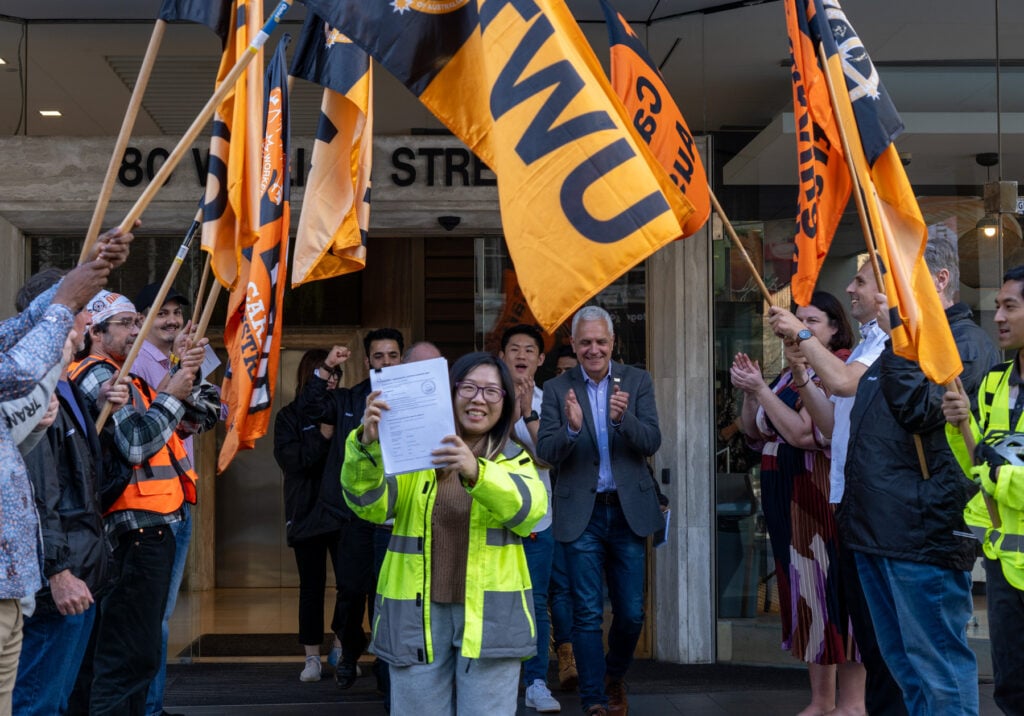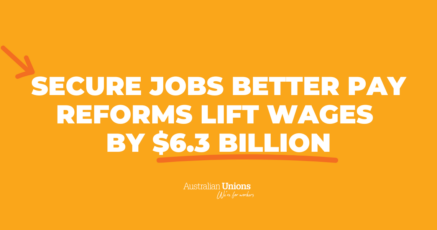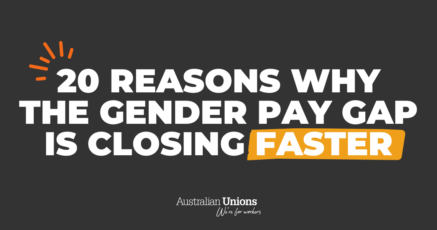Would you work in a job for less than minimum wage, without any paid sick leave, annual leave or superannuation and little to no job security?
This has been the concerning reality that confronts Australia’s 250,000-plus gig economy workers, many of whom work in food and service delivery.
But thanks to new laws, which union members won, gig economy workers are now defined as ‘employee-like’ and are entitled to key rights and benefits that other workers enjoy.
The days of an unregulated gig economy are over
Digital labour platforms like Uber have reshaped lives and changed the way hundreds of thousands of people work over the last decade. The promise these companies make to people looking for work is compelling: work flexibly and earn money on your own terms.
But in practice, it is misleading, and many workers fall through the cracks of workplace laws, with hugely profitable companies operating in grey areas and taking advantage of loopholes that see gig economy workers underpaid, often earning far less than the minimum wage in Australia.
Worker exploitation is rife in the gig economy, with workers pressured to meet unreasonable schedules and performance metrics, at the risk of having their account (and livelihood) terminated if they didn’t keep up with demands.
Worst of all, digital labour platforms often deny responsibility for workers’ health and safety, which has tragically led to high-profile cases of overworked gig workers losing their lives on our roads.
How have companies got away with this for so long? Because gig economy workers have never been classified as ‘employees’ and therefore have not been entitled to legal protections and entitlements, like paid sick and annual leave and superannuation.
After years of union campaigning, the Albanese Labor Government listened to the voices of gig workers; bringing in new legislation in December last year that offers safety and security by closing the legal loopholes.
A new definition: regulated, ’employee-like’ workers
From 26 August 2024, gig economy and road transport delivery workers are now captured under the definition of an ‘employee-like’ worker.
That means the Fair Work Commission has the power to order digital labour platforms to pay these workers a fair wage that meets minimum standards and provide safe working conditions.
And the Transport Workers Union (TWU) didn’t waste a second in making the most of this new opportunity – with gig workers lodging their first application to the Fair Work Commission in the first few days of the new laws. This is a huge milestone towards making gig work safer and fairer!
This is just the beginning, with more applications in the coming months that will cover all areas of the transport industry.

Already a union member?
Reach out to your union for more specific information about how you and your workmates can use these rights in your workplace.
Not yet a member of your union?
Joining your union will ensure you’re getting the pay and conditions you’re entitled to.







SHARE:
New rights and protections for gig economy workers